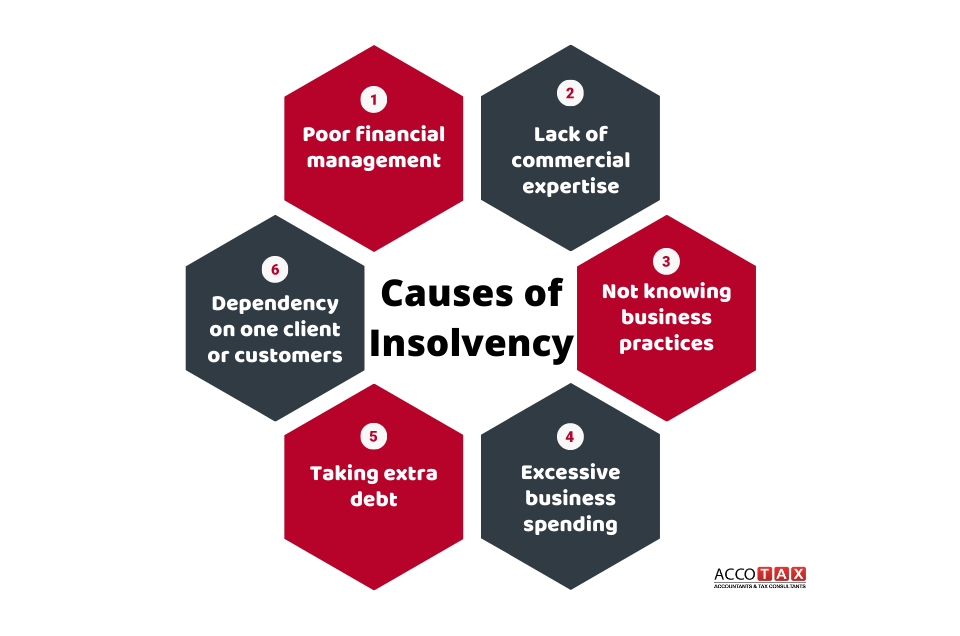Things about Insolvency Practitioner
Things about Insolvency Practitioner
Blog Article
About Insolvency Practitioner
Table of ContentsA Biased View of Insolvency PractitionerThe 10-Minute Rule for Insolvency PractitionerIndicators on Insolvency Practitioner You Should KnowInsolvency Practitioner Can Be Fun For EveryoneThe Best Guide To Insolvency PractitionerThe Only Guide for Insolvency PractitionerExamine This Report about Insolvency Practitioner
Bankruptcy is when liabilities are better than the value of the firm, or when a debtor can not pay the debts they owe. A business can end up being financially troubled due to a variety of scenarios that result in inadequate capital. When encountered with insolvency, a business or individual can contact creditors straight and restructure financial obligations to pay them off.
Organization owners may get in touch with creditors directly and restructure financial debts into more convenient installations. Creditors are typically responsive to this strategy since they want to be paid off and prevent losses, also if the payment is on a postponed timetable.
The proprietor creates a proposition detailing exactly how the debt might be reorganized utilizing price reductions or various other plans for assistance. The proposal reveals lenders how business may generate enough cash money circulation for successful procedures while paying its financial obligations. Usually, a forgiven financial debt might be considered income by the Irs (INTERNAL REVENUE SERVICE).
Insolvency Practitioner - The Facts
When a service has to pay raised prices for goods and solutions, the firm passes along the price to the customer. Rather than pay the boosted cost, numerous consumers take their organization elsewhere so they can pay less for a services or product. Shedding clients leads to shedding revenue for paying the firm's creditors.
The service may end up paying big amounts of money in damages and be unable to proceed procedures. When procedures discontinue, so does the firm's earnings. Lack of earnings leads to overdue expenses and lenders requesting money owed to them. Some business come to be financially troubled due to the fact that their items or solutions don't progress to fit customers' changing demands.
8 Easy Facts About Insolvency Practitioner Described
Costs exceed earnings and expenses remain overdue. Types of bankruptcy consist of cash-flow bankruptcy and balance-sheet bankruptcy. Cash-flow insolvency occurs when a company has the properties to cover their debts however they remain in the wrong form, such as genuine estate rather than liquid funds. Balance-sheet bankruptcy, on the other hand, shows a lack of possessions in any type to cover financial obligations.
The internal revenue service states that an individual is insolvent when the complete obligations exceed complete properties. Insolvency Practitioner. A insolvency, on the various other hand, is an actual court order that depicts exactly how a bankrupt person or company will certainly settle their creditors, or just how they will certainly offer their possessions in order to make the settlements
All about Insolvency Practitioner
If that situation expands longer than anticipated, it can bring about insolvency. When a firm or person is financially troubled, they can not fulfill their financial responsibilities. Solvency is when you have adequate funds to cover the payments you owe. A business is considered solvent when they have much more possessions than responsibilities.

Comprehending the variables that can cause bankruptcy, such as overspending, can help you avoid insolvency and its consequences.
Some Ideas on Insolvency Practitioner You Need To Know
It is popular that directors and officers of firms (and managers of limited obligation business) owe fiduciary duties to their organizations and their shareholders (or members). These fiduciary commitments are specified by state laws and, though there are variants from state to state, they typically include a responsibility of loyalty and a task of treatment.
The obligation of care requires directors and officers to exercise diligence, to make educated decisions, and to act in great belief so that their actions are in the most effective rate of interest of the company. Though past the range of this discussion, some states enable these obligations to be limited either by so noting in the business files or abiding with various other demands.
The Buzz on Insolvency Practitioner

Take care concerning offering investors favoritism at the expenditure of creditors (e.g., authorizing and funding a dividend or a stock redemption). Beware regarding advantageous therapy discover this in between courses of investors. Make affordable initiatives to discover all the facts before taking a details strategy; directors should truly think that any choices made remain in the most effective rate of interests of the firm in its totality (i.e., decisions will be assessed in hindsight see this site in light of the impact of such actions on the company).
In any personal bankruptcy or bankruptcy proceeding, settlements made to particular lenders at the expense of other financial institutions can be clawed back, particularly if there is some link between the business and the creditor. Consider proposing at a yearly investor conference (or any type of other conference of investors) a resolution affirming that all prior business choices and actions taken by the supervisors and police officers of the corporation were taken in great confidence after an exercise of reasonable care.
Our Insolvency Practitioner Diaries
Fully disclose any type of personal or company partnerships with events on the other side of transactions including the firm to prevent the look navigate to this website of a dispute of rate of interest. In examining potential fund raising deals or a sale of assets of the troubled firm, know that these transactions might be looked at later on in light of any kind of subsequent expansion of supervisors' fiduciary responsibilities to consist of lenders.
Report this page